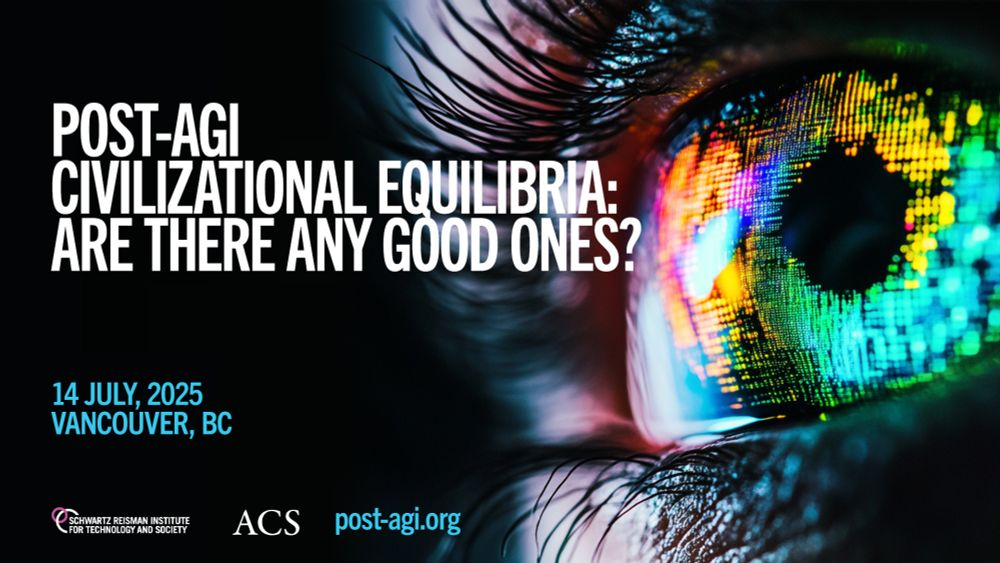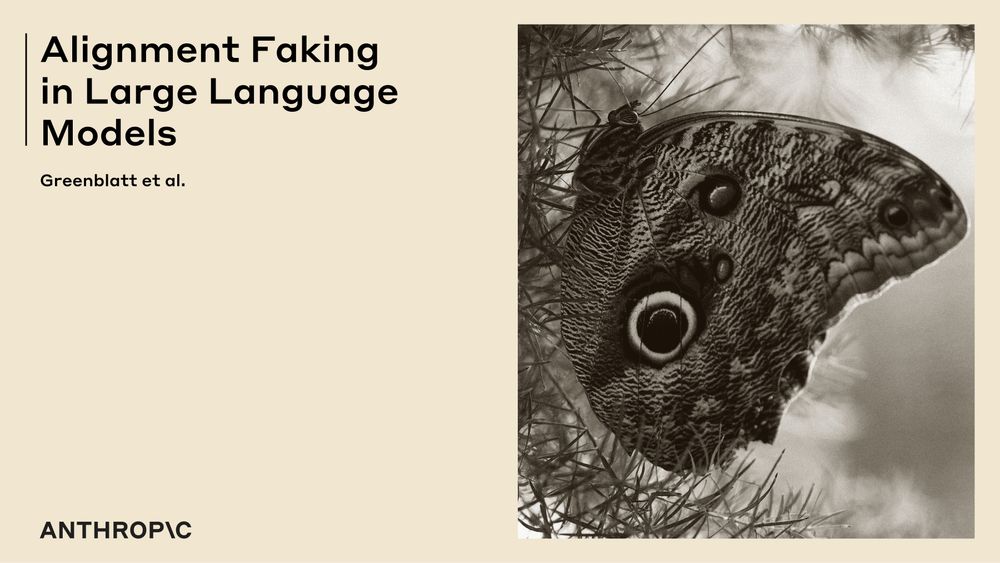We’ll host speakers from political theory, economics, mechanism design, history, and hierarchical agency.
post-agi.org

We’ll host speakers from political theory, economics, mechanism design, history, and hierarchical agency.
post-agi.org
bsky.app/profile/econ...

bsky.app/profile/econ...
Post-AGI Civilizational Equilibria: Are there any good ones?
Vancouver, July 14th
www.post-agi.org
Featuring: Joe Carlsmith, @richardngo.bsky.social, Emmett Shear ... 🧵

Post-AGI Civilizational Equilibria: Are there any good ones?
Vancouver, July 14th
www.post-agi.org
Featuring: Joe Carlsmith, @richardngo.bsky.social, Emmett Shear ... 🧵
www.lesswrong.com/posts/GAv4DR...
with Raymond Douglas, @kulveit.bsky.social @davidskrueger.bsky.social

www.lesswrong.com/posts/GAv4DR...
with Raymond Douglas, @kulveit.bsky.social @davidskrueger.bsky.social
Our goal: solve the alignment problem.
How: develop concrete, parallelisable open problems.
Our initial focus is on asymptotic honesty guarantees (more details in the post).
1/5

In The Guardian today, SRI Chair @davidduvenaud.bsky.social explores what happens when AI doesn't destroy us — it just quietly replaces us.
🔗 www.theguardian.com/books/2025/m...
#AI #AIEthics #TechAndSociety

In The Guardian today, SRI Chair @davidduvenaud.bsky.social explores what happens when AI doesn't destroy us — it just quietly replaces us.
🔗 www.theguardian.com/books/2025/m...
#AI #AIEthics #TechAndSociety
Start every single reply with a point of agreement. It disarms the combative impulse on both sides, and forces you to try to interpret their words in the most sensible possible way.
Start every single reply with a point of agreement. It disarms the combative impulse on both sides, and forces you to try to interpret their words in the most sensible possible way.
Even without AIs seeking power, we argue that competitive pressures are set to fully erode human influence and values.
www.gradual-disempowerment.ai
with @kulveit.bsky.social, Raymond Douglas, Nora Ammann, Deger Turann, David Krueger 🧵

Even without AIs seeking power, we argue that competitive pressures are set to fully erode human influence and values.
www.gradual-disempowerment.ai
with @kulveit.bsky.social, Raymond Douglas, Nora Ammann, Deger Turann, David Krueger 🧵


